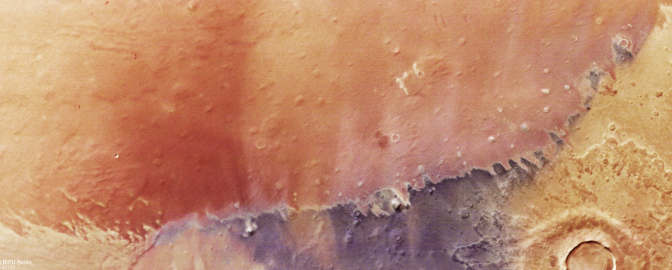Save NASA Science Campaign progress report

Written by
Jack Kiraly
Director of Government Relations, The Planetary Society
June 26, 2025
When I wrote the advocacy update for the June issue of the Planetary Report, I could not have imagined the ongoing success of our advocacy efforts this year. But given that NASA and the entire American space program are facing an extinction-level crisis, this shouldn’t be too surprising. As we approach the midpoint of the year, I am excited to report that 2025 has been a banner year for space advocacy with the launch of our Save NASA Science Campaign.
Since January 1 of this year, we’ve held more events, appeared in more publications, facilitated more messages to Congress, and engaged more members of the public than at any other point in the Society's recent history.
The advocacy for Europa Clipper might be the only other campaign that beats the sheer number of actions taken to support scientific discovery and space exploration, but that benefited from ample lead-time and planning. The Save NASA Science Campaign has come together organically in reaction to the existential threat to space science, but has now shifted to be a forward-looking effort to bring together the public, academia, industry, and international community to advance science.
The success of the Save NASA Science Campaign is the direct result of the actions taken by tens of thousands of space advocates from around the world. The fight is not over, but we are in a position of strength.
How We Got Here
Just a couple of months ago, the contours of the new administration’s space policy were obscure. The Office of Management & Budget (OMB) NASA budget request had not been released, and all we knew about the proposal were the rumors of major cuts and shifts of policy being considered. But details were scant. And those of us who rang the alarm bell were told that there was no way that the Administration that once gave us Artemis, the highest science funding levels in history, and delivered solid space policies in the first term would turn its back on future American leadership in space exploration.
In a sense, they were right. President Trump, in his inaugural address and first remarks to a joint session of Congress, alluded to space ambitions as a priority for the administration. So what changed?
The danger can be traced back to one unelected bureaucrat – OMB Director Russ Vought – who, in the absence of Senate-confirmed NASA leadership or internal advocates, took advantage of the situation by proposing an unstrategic, unprecedented, and wasteful retreat from space exploration that is inconsistent with the President’s stated interest in a “golden age of American innovation.” His proposed decimation of space science can be traced back to a document penned by Vought in 2022 to respond to then-President Biden’s FY 2023 budget request.
To read more about the specifics of the budget request, check out our Guide to NASA’s Budget with helpful analysis, charts, and links to datasets.
The Metrics
Taking a look at the last six months, the Space Policy & Advocacy team has been busy sharing information about the budget crisis with stakeholder groups, organizing the space community response, and connecting the public with resources and tools to effectively advocate for NASA.
We hosted more than a dozen informational sessions at conferences, on Capitol Hill, and online, including a community budget briefing that was attended by 500 scientists.
We designed, coded, and launched the NASA Science Spending Dashboard to educate policymakers and the public about the economic impact of NASA Science in all 50 states and a vast majority of congressional districts. This is a first-of-its-kind data dashboard for federal spending on NASA Science projects.
Our own Chief of Space Policy Casey Dreier was featured in both the New York Times and SpaceNews editorial sections with highly-circulated articles that have helped inform the public about the dangers posed by the OMB budget.
The Planetary Society worked with a coalition of 19 other space organizations, from across professional societies, trade associations, student groups, and the advocacy community, to submit a letter to House and Senate leadership opposing the reckless cuts.
In connecting the public with advocacy opportunities, the 2025 Day of Action was a massive success that kicked off a season of grassroots activism. The Save NASA Science Campaign began in earnest at the start of May, with the launch of the Campaign Action Hub. Through this effort, The Planetary Society has facilitated an astonishing 46,000+ messages from every state and all but one Congressional district.

To expand outreach to the global space community, we launched a petition that, in the span of less than a month, garnered nearly 21,000 signatures, representing every U.S. state, the District of Columbia, and Puerto Rico, as well as more than 100 countries.
And all of this momentum translated to congressional action. A bipartisan group of 83 Members of the U.S. House of Representatives, led by Planetary Science Caucus Co-Chairs Rep. Don Bacon (R-NE) and Rep. Judy Chu (D-CA), sent a letter to the House Appropriations Committee opposing the cuts and requesting full funding for NASA. A Senate version of the letter garnered 15 signatories from 13 states.
Speaking of the Planetary Science Caucus, the sole organization in the U.S. Congress dedicated to advancing space science, research, and exploration, was kicked off in the ornate halls of the Rayburn House Office Building with a crowd of more than 150 staff and policy professionals. The Caucus now boasts two dozen members from coast to coast.

And all of this happened in less than six months. The next phase of the campaign, one that continues to put pressure on policymakers to reject the cuts and protect science funding, has already begun.
What happens next?
It’s summer in Washington, D.C. Temperatures are soaring, and the political class is preparing for a long, arduous march toward the end of the fiscal year on September 30th. Currently, the Congress is focused on taxation legislation called budget reconciliation. Until that finishes, it is unlikely that the annual budget process, called appropriations, will make much headway. The House Appropriations Committee will be advancing its draft of the FY 2026 budget in mid-July. The Senate is likely a few weeks behind them, with the hope that the proposal will be made public sometime before the famed August Recess. Then September will be a time of pinched deadlines to keep the government open and keep funding going to its many functions, including NASA. A Continuing Resolution is all but a certainty.
That means we have the benefit of time to keep up the pressure and bolster the coalitions we’ve built over these many months. If you haven’t taken action yet, now’s the time to get involved. If you have, thank you, and consider making a gift to The Planetary Society. I encourage you to keep checking our Save NASA Science Action Hub for updates and opportunities to engage with the campaign.
A little history lesson to close out this report. The Planetary Society was created in the face of the last existential crisis for the space program. In the early 1980s, then-OMB Director David Stockman “wanted to get NASA out of planetary exploration,” as described by our co-founder, Dr. Bruce Murray, in his autobiographical “Journey Into Space.” The Reagan Administration was proposing the cancellation of Galileo, the Venus mapper that became Magellan, and other future deep space exploration projects. It was short-sighted then, and the mirror proposal is short-sighted now. But as then, it is now: you can count on me and everyone at The Planetary Society to stand united for scientific discovery, global collaboration, and space exploration.
Through the tireless efforts of trailblazers like our founders and charter members, working closely with partners in Congress, we have earned the last 45 years of amazing science, world-changing technology, and associated economic prosperity. And it’s with the help of you, our supporters and advocates from around the globe, that we will get through this crisis and get back to the business of exploring the Cosmos.
Support our core enterprises
Your gift today will go far to help us close out the year strong and keep up our momentum in 2026.
Donate

 Explore Worlds
Explore Worlds Find Life
Find Life Defend Earth
Defend Earth

